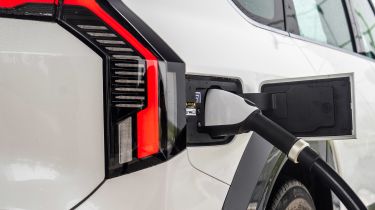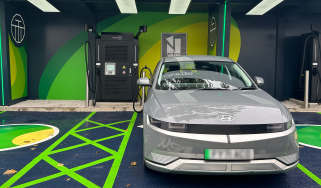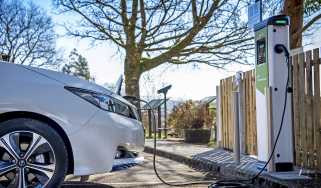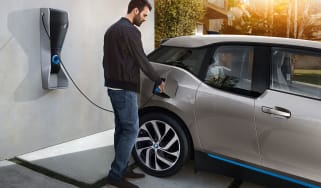Energy price cap to fall in April making 1,000s of electric cars 12% cheaper to charge
Ofgem, the UK energy regulator, has announced that the energy price cap will drop to £1,690 from April 2024 and that’s good news for electric car owners

Electricity prices are coming down for 29 million UK households. The energy regulator Ofgem has announced that it will cut the energy price cap to £1,690 in April from the current £1,928 level. It’s good news for all bill payers and even better news for those who charge an electric car on a standard variable electricity tariff. Those EVs will instantly become 12.3% cheaper to charge.
One great thing about electric cars is that they can get more environmentally friendly as the UK’s electricity production becomes greener over time. As with petrol and diesel fuel prices, however, the price of that electricity can have a big effect on electric car running costs. There hasn’t been much good news on that front in recent times and even with the reduction of the energy price cap, electricity prices will remain higher than they were before the 2021 energy crisis was sparked by the Russian invasion of Ukraine. Back then, the energy price cap was pinned at £1,138, but at least the new level from April will be the cheapest since March 2022.
Here at DrivingElectric, we always advise readers who charge their cars at home to explore the option of a specialist electricity tariff designed for electric cars. These deals are becoming more widely available again following the energy crisis and can open the door to much cheaper electricity prices overnight, when cars are typically on charge. Customers on these tariffs will not feel the benefit of this energy price cap reduction in the same way as those on standard variable tariffs but estimates from leading provider Octopus Energy suggest an EV tariff can save electric car owners as much as 70% on their bills.
The UK energy price cap is set to be adjusted again in July 2024 and is expected to fall further, but it’s important to note that it is not a cap on the amount you pay for your electricity. Instead, the calculation is made based on typical electricity usage and is meant only as a guide. It’s likely that electric car owners charging their cars at home will have higher than average electricity usage but EVs remain demonstrably cost effective to run overall in comparison to equivalent petrol and diesel cars. With electricity costs seemingly headed in the right direction, that gap looks set to grow.
Recommended

The UK’s fastest electric car charger is live, but it’s too fast for most EVs

UK EV charging network grows by 47 per cent this year

Gridserve’s new lab aims to boost electric car charging point reliability
Most Popular

EV Deal of the Day: Dacia Spring is amazingly good value at £116 per month

EV Deal of the Day: budget-friendly Ford Capri for just £234 a month


